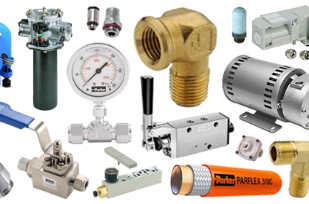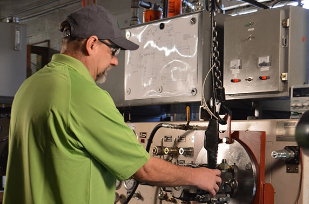Given the prevalence of outsourcing in the businesses of today (and the strong potential for a competitive advantage), your business can hardly be blamed for turning to contract manufacturing to gain an edge.
There are definitely pros and cons to working with a contract manufacturer. The key is to ask the right questions so you can determine if the pros and cons of a particular manufacturer are something your business can live with.
That’s why we’re breaking down eight of the most important questions to ask when you sit down with a manufacturer.
1. How Will you Protect Intellectual Property?
If you’re going to outsource your manufacturing, one of your first concerns is the protection of your intellectual property.
It should also be the first concern of any potential manufacturing partner.
If a potential manufacturer is asking questions about your product before any nondisclosure agreements have been signed, that’s a red flag. You are their client, which means it’s their job to protect you from day one.
Don’t be shy in asking about how they’ll protect your property. Ask about their data systems, how their information is encrypted on computers, and how they handle secure IP information.
Any contractor worth their salt will happily answer these questions for you. They know that your property is your first priority, and they should be willing to show that they’ll go above and beyond.
2. Can you Provide Us with Creative Solutions?
However, a great contract manufacturing partnership is also about creative solutions. After all, you’re going into this partnership looking to gain an edge.
They recognize that, and they should be able to demonstrate how they’ll provide that edge.
When you ask this question, good manufacturers should be able to provide detailed project timelines and suggestions to shorten your lead times and improve productivity. They should also be able to point out risks and how to minimize them.
Remember, you want a manufacturer that’s an expert in their industry. If they can’t flex their muscles and impress you with the solutions they can provide in an interview, they won’t be able to impress you during a working relationship either.
3. Will Pricing and Costs be Transparent?
After intellectual property, pricing and costs (and the relative transparency of those costs) should be your next big priority.
Remember, this is a business partnership. You are going to a manufacturer to ask them to provide you with a service. A good manufacturer recognizes that this is an expense for you and should be willing and able to answer your questions about cost.
Can you be certain from your conversation how open the manufacturer will be about their costs? Do you know what they’re charging up front and what their margins are? How do they handle unexpected additional costs?
Nothing hurts your bottom line more than surprise fees. If your manufacturer likes to take on extra fees at the last minute, you should wonder whether you’re really getting the best deal.
4. What Will your Top Three Customers Tell Me?
Manufacturers, like many businesses, are service providers. And that means that they should be willing and able to demonstrate the quality of their service to a potential new customer.
One of the easiest ways for them to do this is to offer referrals to current customers.
A confident partner is always willing and proud to have potential customers reach out to their top accounts. If they’ve done their job well, they know those accounts will give shining reviews.
If a potential manufacturer is unwilling or unable to provide this, it should be a red flag.
5. Do you Have a Quality Program?
If you’re considering a contract manufacturer, don’t forget to ask them about their quality program.
Manufacturers worth their salt will have a quality program in place to ensure that all products they produce meet the quality standards their customers expect, like the ISO 9001.
But don’t just take their word for it. Ask manufacturers to show you records that demonstrate their ability to produce detailed test data, high-quality reports, and accurate documentation.
6. Are you the Right Size For My Business?
It seems like an obvious question, and yes, plenty of businesses will answer yes because they want the sale.
However, it’s a real consideration if you want a productive working relationship.
If you’re a small company, you don’t need to partner with a big-time contract manufacturer to get what you need. Alternately, a big company can’t produce what they need if they partner with a small manufacturer.
7. How Vertical are you?
You should also do a thorough examination of the manufacturer’s in-house processes to ensure that they align with what you’re looking for in a partner.
For example, do they have in-house engineering? What about final packaging and logistics?
Before sitting down with a manufacturer, take a look at your own business to assess what you need. Then, go to a potential partner with a list of questions and requirements that your business needs for a successful partnership.
8. How is your Corporate Culture?
However, processes won’t tell you everything you need to know about a manufacturer.
In fact, corporate culture can be hugely informative.
For example, you should ask yourself (and try to ascertain from your conversation) if the company’s employee relations are similar to your own. Are the employees engaged in their work? Does the company go out of their way to engage their employees and create lasting relationships with them?
The way a company treats their employees can tell you something about how they’ll treat their partners. Plus, happier employees are more likely to stay productive, which is good for business at both ends.
Making the Most of Contract Manufacturing
Contract manufacturing can give your business a real lead on the competition–if you find the right partner for your business.
If you need more guidance on how to find and work with a manufacturer, take a look at our blog for more ideas, like these eight ways to manage quality when working with a contract manufacturer.





